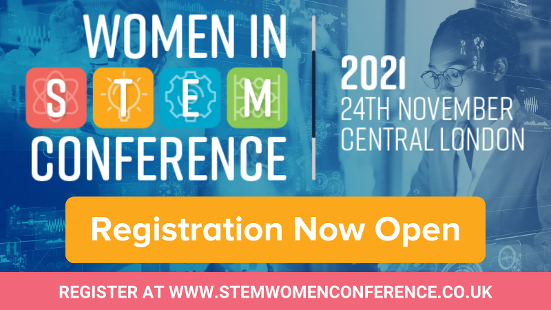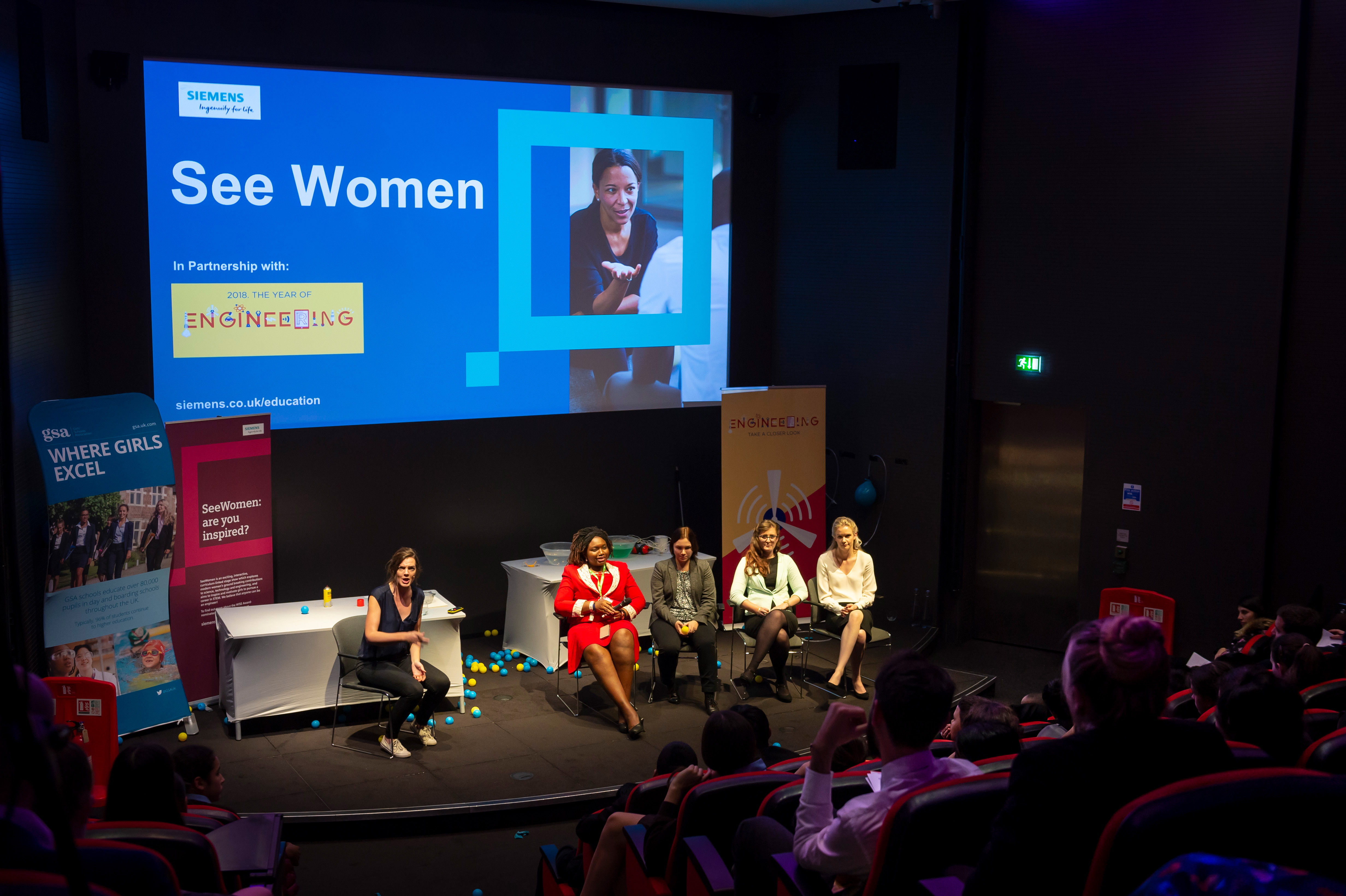Tough-Stemmed in STEM: The role of Storytelling & Entrepreneurship
In this thought piece, Dr Ghina Halabi explores the role of storytelling and entrepreneurship for women entering STEM. Dr Ghina Halabi is an astrophysicist leading EnterpriseWOMEN at Cambridge Judge Business School’s Entrepreneurship Centre and Founder and Executive Director of She Speaks Science.
You can hear more from Dr Ghina Halabi as she delivers an on demand session at the Women in STEM Conference 2020
My aspirations may have surprised those who assumed that the conservative upbringing of a girl in a small village in Lebanon, a country torn with a raging civil war in the eighties, would have produced someone with Earth-bound dreams rather than an astrophysicist.
Growing up with the sounds of artillery, rockets and intimidating sonic booms during my early years may explain a desire as teenager to become a fighter pilot. Lacking role models and guidance into such career path, I took to studying physics, then a PhD in astrophysics. However, no one had attempted that degree in Lebanon before so there was no clear path to tread. I had to forge one for myself.
This has always fuelled my work on broadening access so that young people don’t miss out on becoming engineers or pilots or astronauts because of lack of mentorship or role models.
Importance of STEM
Science, technology, engineering and mathematics are crucial for our societies. They drive technology that boosts the economy, creates jobs, and improves the quality of our lives. We need STEM experts to innovate, from curing diseases, to tackling the climate crisis and getting us to Mars. However, there are large inequities in STEM education and a shortage of STEM skills.
Besides the societal reasons underpinning the need for equity such as equality of opportunity and greater diversity of thought and experience, there are economic factors too. Shortage of STEM skills costs UK businesses an estimated £1.5bn per year. The UK’s departure from the EU, compounded with environmental challenges and the pandemic make diversifying the STEM pipeline and talent pool more urgent than ever.
STEM skill shortages can be reduced by increasing participation of under-represented groups. Women take up 22% of STEM-based careers, only 13% at management level. In the engineering workforce, women are 12% and ethnic minorities, who are 13% of the population, are 8%.
It is beyond doubt that institutional and structural reform is called for to address underlying inequalities. Reform should go hand in hand with efforts to make STEM more attractive, but how?
Not “Once a failure” but “Once upon a time”
A recent poll by the British Science Association shows that 37% of young people are more likely to consider a scientific career as a result of COVID-19, so it’s the perfect time to compound our efforts.
Storytelling is a powerful vehicle to engage and inform. Stories of role models are empowering and effective, but that’s not the only way storytelling helps. One factor that deters young people from pursuing a scientific career is the notion that in order to be a scientist, one has to be a “genius" or exceptionally talented. Our stereotypical role models seem to have enforced a normative idea of who does STEM, overlooking struggle and resilience as essential aspects too.
A study published in 2016 in the Journal of Educational Psychology finds that students who are exposed to scientists “struggle stories” recorded higher science grades and levels of motivation than those who weren’t. This makes inclusive stories that narrate the scientist’s struggle, as a protagonist searching for the truth, quite effective in normalising failure and building resilience among young explorers.
Role of entrepreneurship
Raising awareness on the breadth of career options enabled by STEM qualifications also increases participation. Experiential learning and hands-on practice can strengthen and maintain learners’ interest in STEM.
Entrepreneurship thus provides a real context to STEM benefits by translating innovation into products and services that improve lives. With universities now offering programmes that support start-ups, more students from diverse backgrounds are keen on becoming founders. In the UK, a quarter of university students started - or plan on starting - a company. Start-ups also attract diverse founding teams, with 40% having at least one woman and 43% with at least one from an ethnic minority background.
Championing the power of innovation and the role of women and minorities in entrepreneurship, I designed, launched and now lead EnterpriseWOMEN at Cambridge Judge Business School’s Entrepreneurship Centre to provide business education that helps founders scale up their businesses.
In the current social and political climate we are forced to rethink education and its routes to impact. Entrepreneurial education allows a shift from the traditional “learning for grades” model to “learning for purpose”. With a focus on interdisciplinarity, problem solving, societal impact, collaboration and leadership we prepare our countries and youth for the future.
With this aim in mind, I founded She Speaks Science in 2018. As a social enterprise we use the power of storytelling to make STEM inclusive, promote women and minority scientists, and spark young people's enthusiasm for STEM. Our storytellers demonstrate how science is at the core of our lives and our storytelling workshops train students in co-creation, innovation and collaboration, essential skills for future generations.
In this world, what matters is not what we know but what we can do with what we know. Storytelling and entrepreneurship are two effective vehicles that can encourage the youth into STEM so they can shape a better future as vectors of social progress and agents of change.
We hope you enjoyed the above guest blog piece written by Dr Halabi. If you are interested about finding out about how you can support the advancement of women in STEM, join us at the Women in STEM Conference 2021 by clicking below:
The piece above is just one of many we have written as part of the newly launched IG Higher Education Community Hub.
This hub provides the higher education community with the latest resources, case studies, thought leadership and CPD events. Our aim is to support best practice, drive innovation and support the development of higher education professionals across the sector.



%20(1).png)

